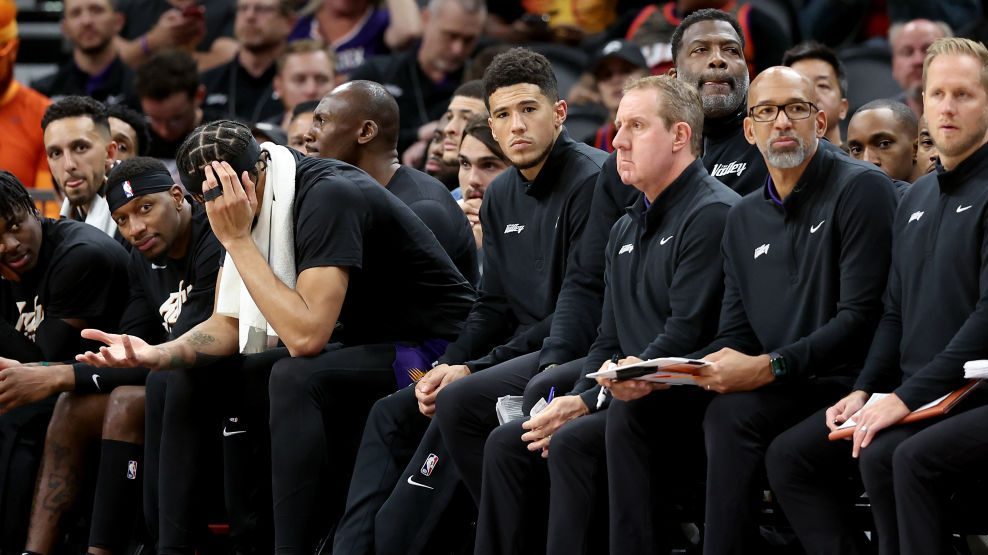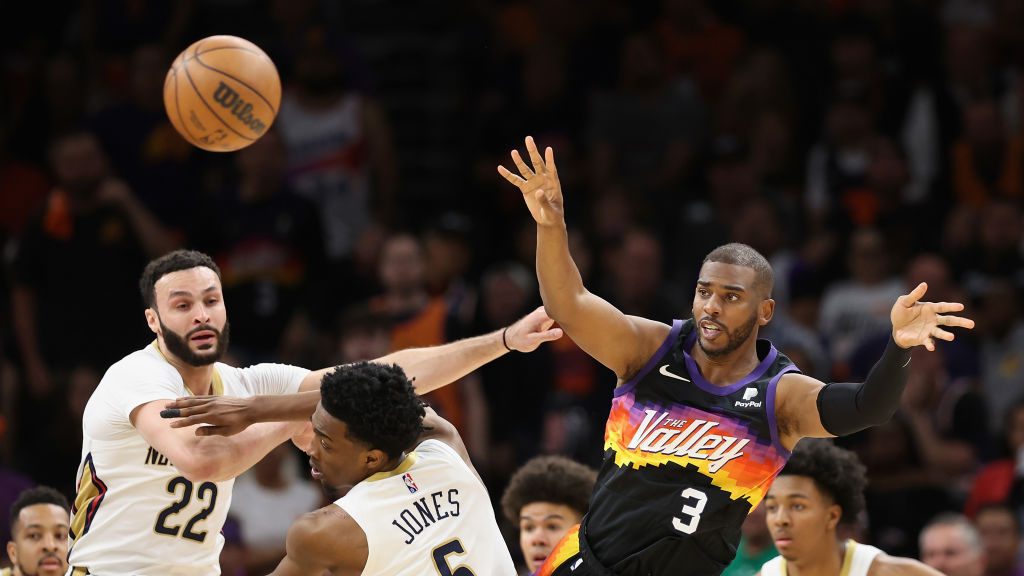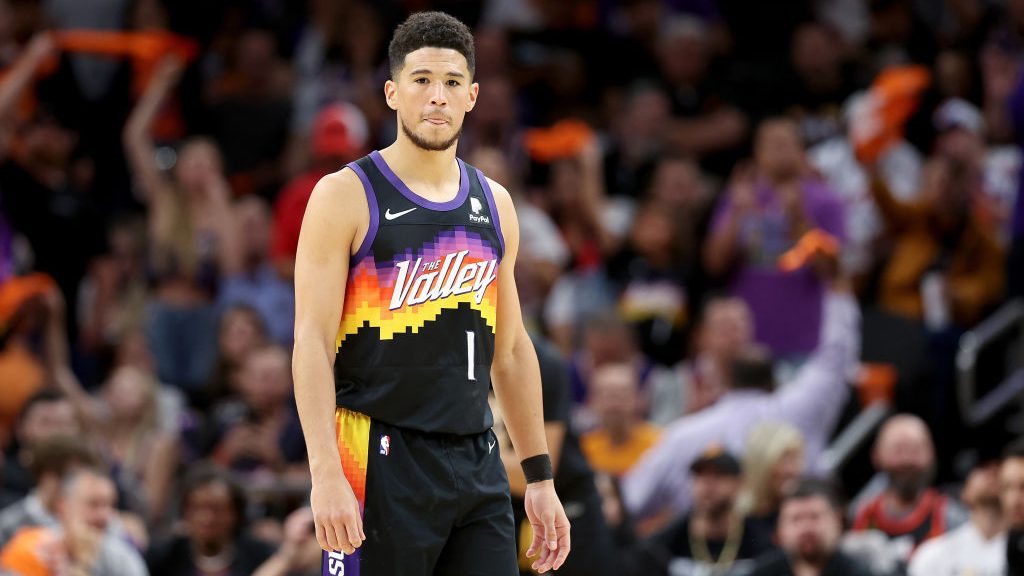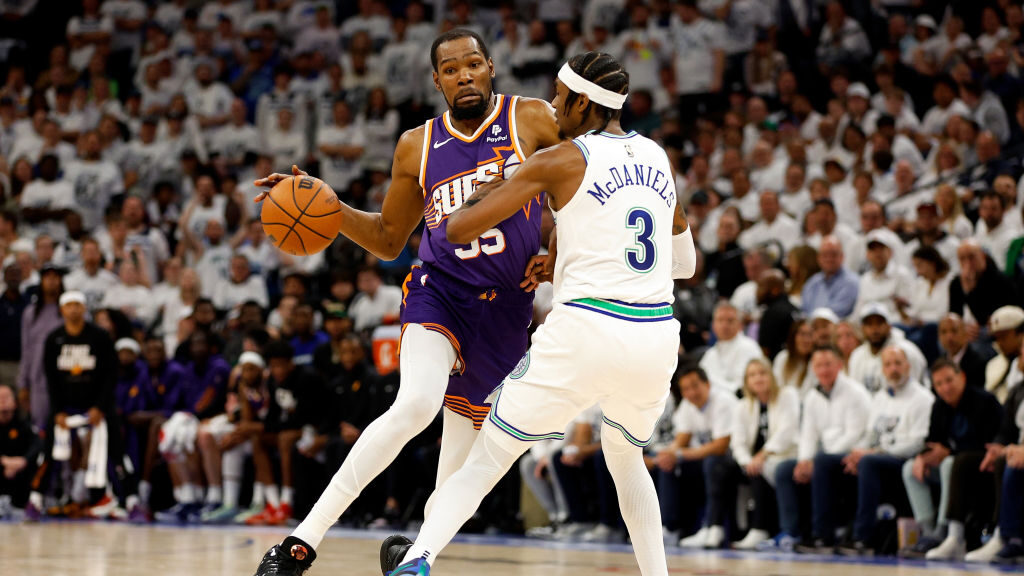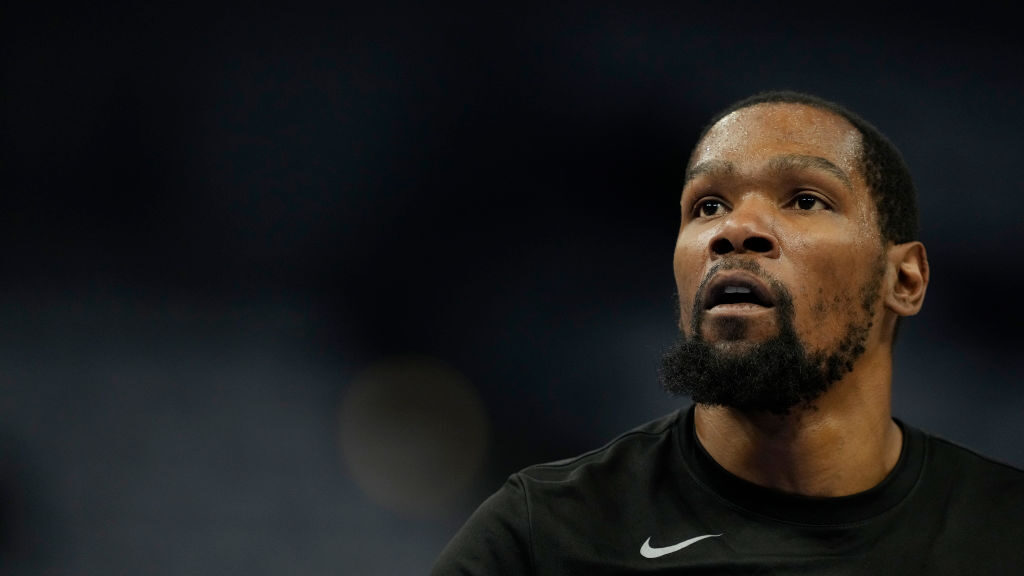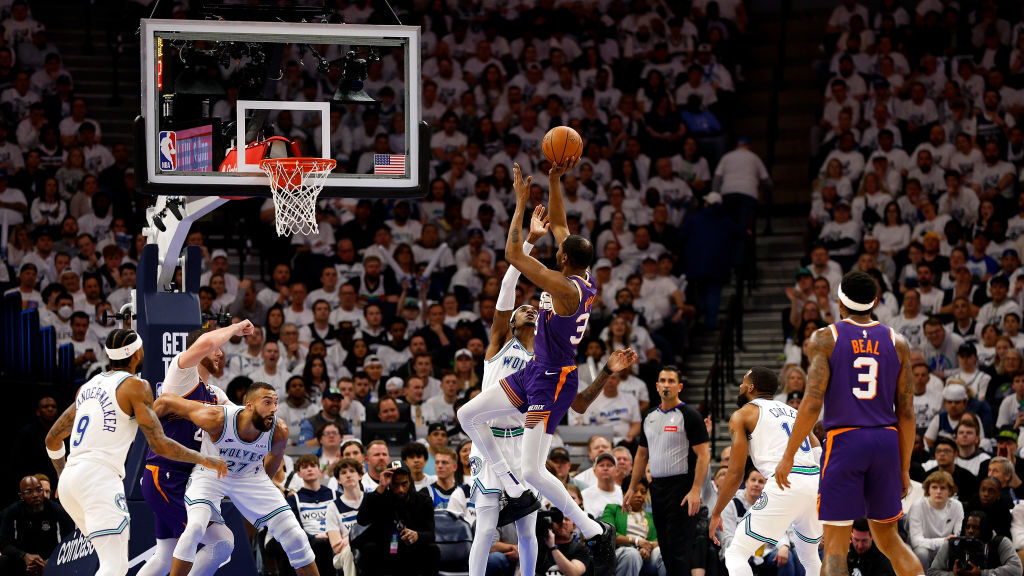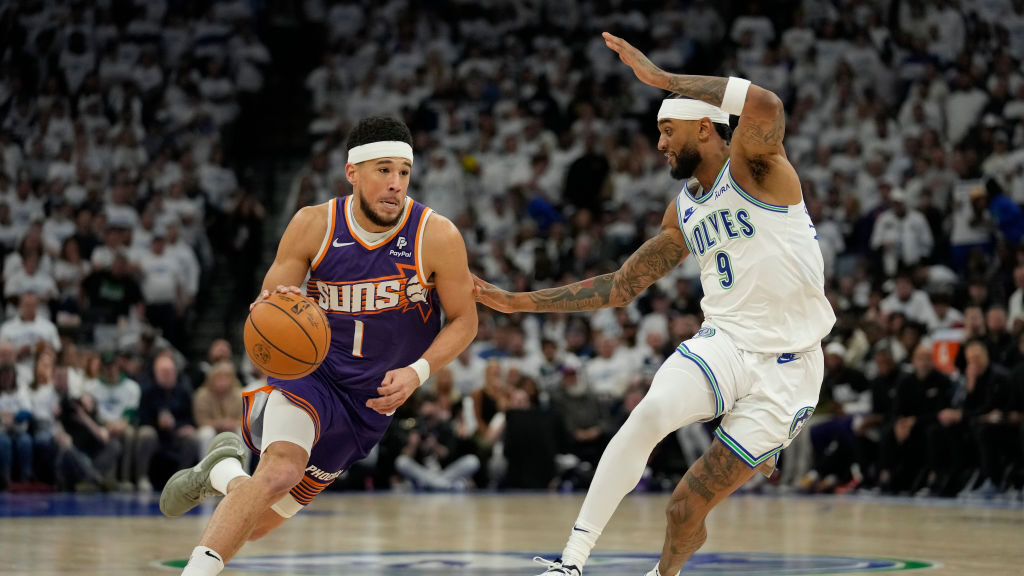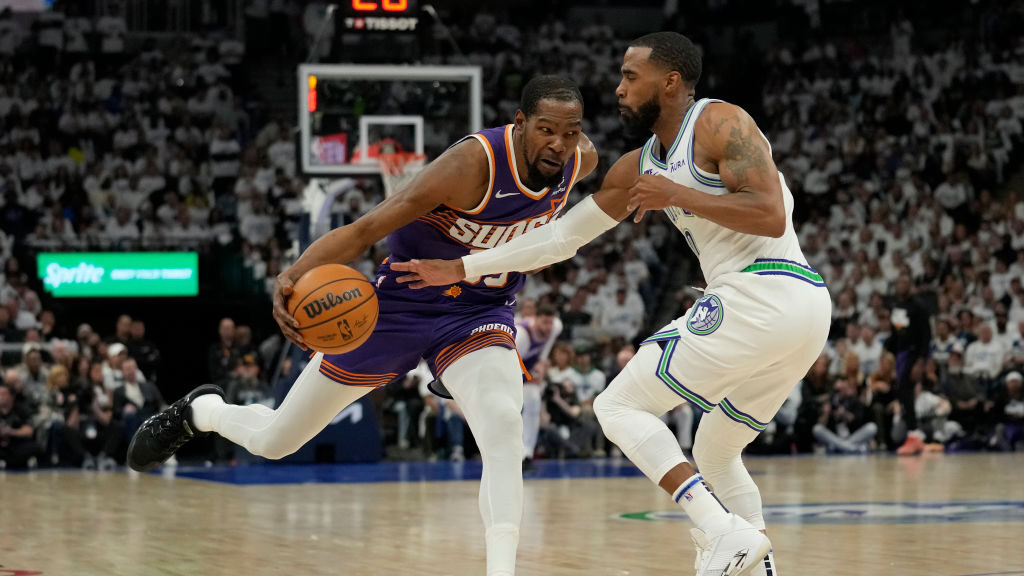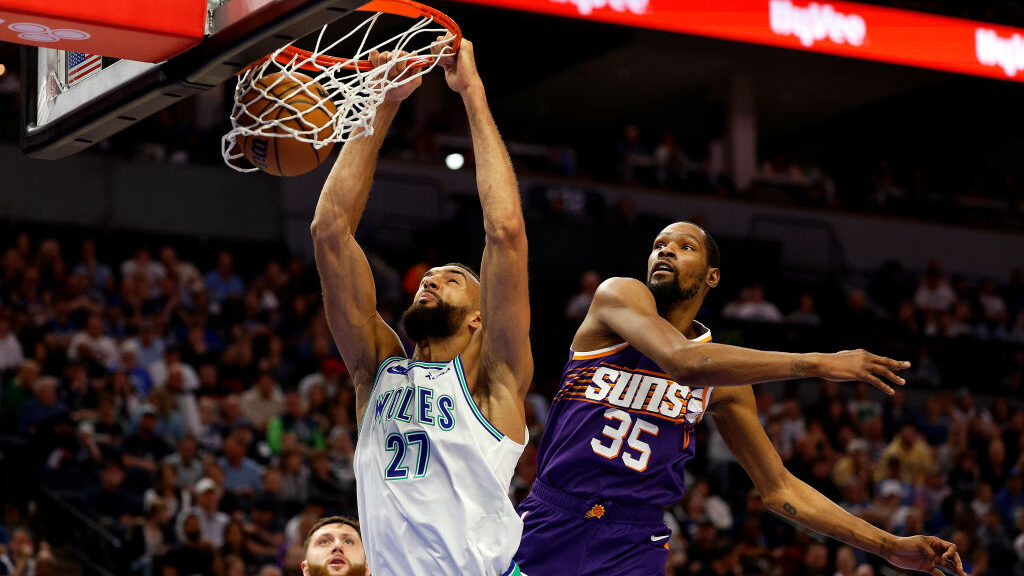Pelicans found a confidence, tweaks to make it a series with Suns
Apr 19, 2022, 11:30 PM | Updated: Apr 22, 2022, 8:23 pm
PHOENIX — A lot about how bad the New Orleans Pelicans looked in a series-opening loss to the Phoenix Suns wasn’t sustainable.
They shot 38% with their two stars struggling. They scored just 38 points in the paint despite getting 23 more shots than the Suns because they shot 34% there.
All that teetered back to the norm Tuesday in Game 2, when a few red flags that popped up for Phoenix were exacerbated by Devin Booker scoring 31 points by the half and then exiting with a hamstring issue in a 125-114 defeat that sends the series to New Orleans tied up, 1-1.
And we’re not talking about the offensive rebounding woes from Game 1.
A few items that are not sustainable bit the Suns, as well.
One of those was Chris Paul’s shot. After scoring 19 points in one quarter in the series opener, he went 5-for-16 despite appearing to get to his spots well enough.
Meanwhile, shot-making pushed the Pelicans ahead of the Suns this time around, with Brandon Ingram going off for 37 points, 11 rebounds and nine assists.
Former Phoenix assistant and current New Orleans head coach Willie Green found some fissures in the Suns’ seemingly unbreakable brand of basketball. Now his team heads to Game 3 feeling confident on several levels.
Brandon Ingram went off
Ingram hit all three of his triples, got to the foul line eight times and worked along the elbows, where double-teams weren’t even enough to stop him from getting off his shots.
“I’m glad he gets to play on this stage,” said C.J. McCollum, who added 23 points and nine assists while hitting six threes. “Tonight he took the game over, every facet: passing rebounding, dribbling to his spot, getting to the line, hitting threes. You got to see the full arsenal tonight.”
Sometimes shot-makers make shots, as Booker’s 31-point first half said as well.
For Ingram and the Pelicans, that opened up the Pelicans offense in the second half especially.
“We were taking what they were giving us,” Green said. “But also we understand they were packing the paint, and we have to shoot the ball when we’re open. They’re loading up on Brandon, they’re loading up on C.J. at times.
“When they make that pass, guys have to be ready to point-five mentality. Shoot the ball, drive it, make the pass.”
Pelicans bombed from the corners
The Suns lamented their effort on several terms.
Poor transition defense was one thing, as much as the Pelicans deserve credit for manufacturing some of those looks.
Still, New Orleans shot 55% for the game and went 17-of-30 (57%) from three-point range.
Williams said Phoenix made too many curious personnel-understanding whiffs, like allowing Jose Alvarado — who’d played five minutes through the first three quarters — to score eight fourth-quarter points.
And while he’s a 29% three-point shooting on the regular season, his two makes in the fourth were of the easy variety.
“Just didn’t respect him enough to get our hands up,” Suns coach Monty Williams said.
New Orleans, though, bombed away in the left corner, almost exclusively. The team went 5-of-8 from the corners.
The Suns sniffed it out eventually, picking off at least three kickouts to the weakside corner. Still, the Pelicans still nailed two threes in that corner in the second half.
“There were a number of times where a guy would slip to the basket and the low man would have to come help, and he left his guy in the corner and we’d give up a swing pass for a three,” Williams said. “Although I didn’t think we had great ball pressure to force hangtime passes. A lot of those passes were direct-line passes.”
Jaxson Hayes found his way
Eleven minutes of Jaxson Hayes playing his role as a jumbo power forward in Game 1 next to center Jonas Valanciunas seemed to be playing into the Suns’ hands. New Orleans’ spacing was bad with two bigs clogging things, as Booker sunk off Hayes’ frequent corner looks to help his teammates.
Green, though, suggested prior to Game 2 that starting lineup wouldn’t change — and that Hayes’ teammates would need to pass him the ball and trust that he’d make the best decision.
What Green didn’t tell reporters beforehand is that New Orleans wanted to weaponize the player that the Suns were preying on. With those cross-matches of a guard like Booker loosely watching Hayes on offense, the Pelicans made Hayes a transition weapon.
He sprinted to the other end and caught the Suns defenders crosseyed for a few transition dunks.
One of those included was the play that Booker appeared to injure himself on while trying to chase down and block Hayes.
“(Hayes is) always athletic in a number of environments, but tonight he was taking off and running and they put a lot of pressure on us. And they were switching,” Williams said.
Hayes finished with nine points, three rebounds and two blocks — nothing eye-popping, but certainly an athletic weapon that threw the Suns for a few broken plays that added to the crazy percentages by the end of the night.


